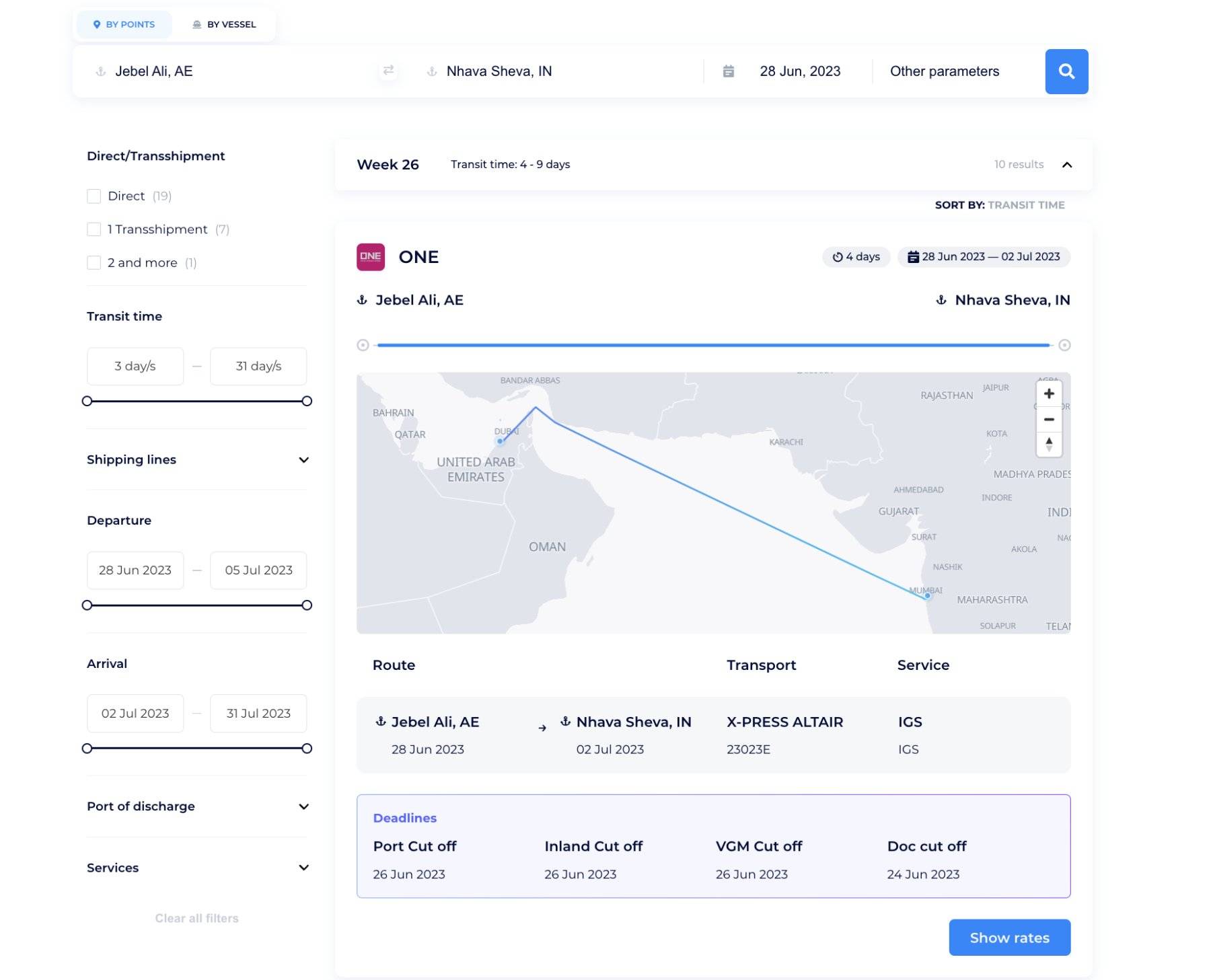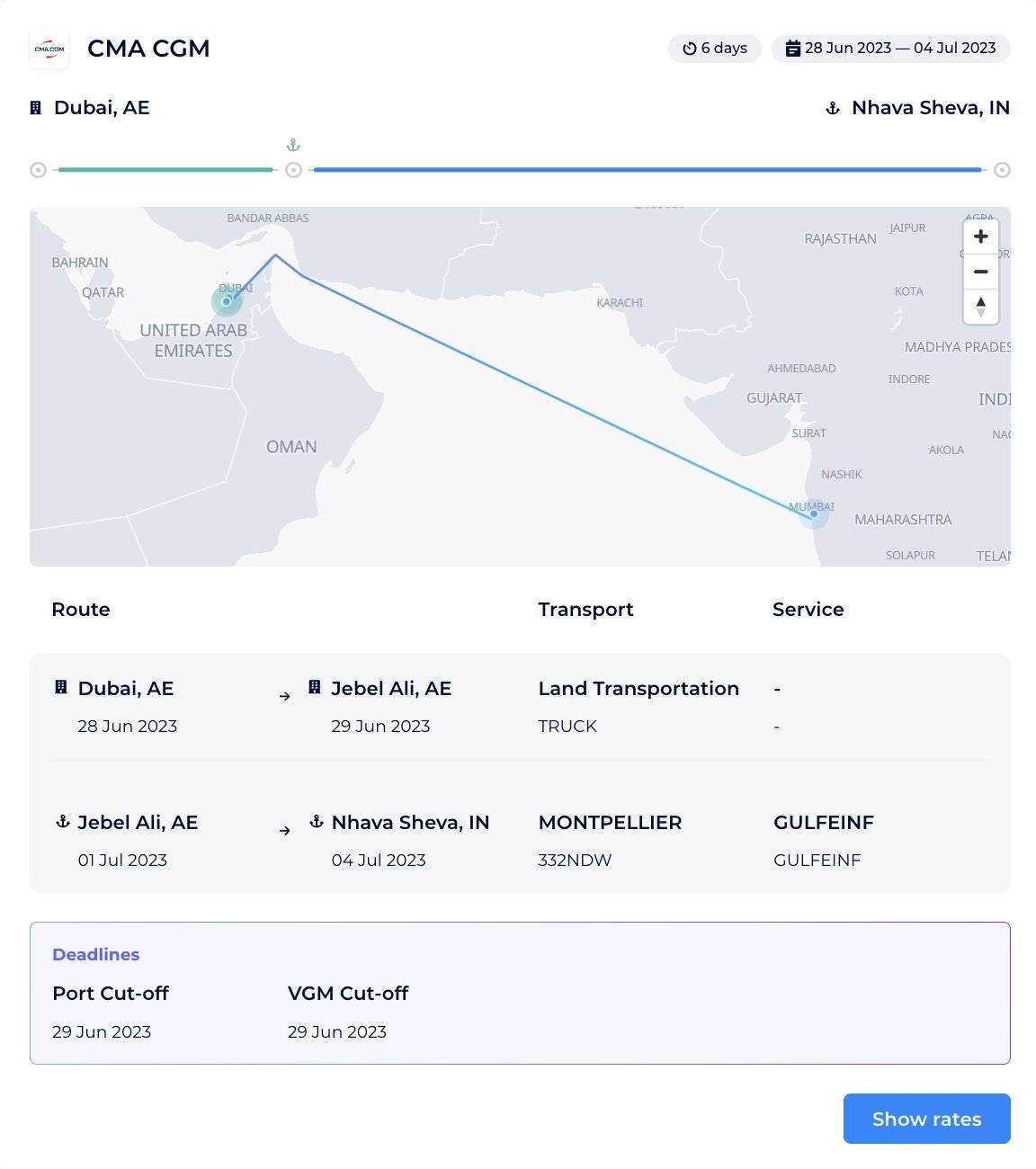Optimization and quick access to vessel schedules are designed to combat one of the main causes of unnecessary transportation budget expenditures: cargo delays in the port, on the route, at a transshipment point, etc. This force majeure is influenced by many external factors, such as weather conditions, unplanned urgent repairs, or temporarily limited port capacity for vessels and container handling.
Not all of these factors can be influenced or even predicted. After all, maritime cargo transportation is a fast-paced industry. Hence, the carrier's possession of advanced data is in high demand by shippers, consignees, warehouse workers, port authorities, and others.
Let's take a look at what logistics solutions a freight forwarder will receive and be able to provide with enhanced ship schedule data.
Complications in booking shipments by schedule
Data inconsistencies
The first challenge is the incompatibility or inconsistency of the information provided to the average shipper by carriers or shipping lines. After all, logistics service providers have a specific system of storing information that is most convenient for them, as well as different views on relevant and additional information. This diversity of information causes you to engage in a disinterested manual search for shipping schedules.

In addition, the lack of information and insufficient scoping also characterize the flawed modern logistics market. That's why competitiveness and loyalty to carriers are shaped by the relevance and convenience of all the information that shippers need.
Lack of awareness and automatization
The ability to quickly find the relevant schedules, analyze shipments, receive automated notifications, or quickly compare results for the necessary routes is essential when looking to capitalize on digital logistics opportunities.
Without a clear picture of your freight shipments, you won't be able to predict schedule changes and unfavorable, overly-long routes, which will lead to financial and reputational losses due to delays and the extra costs of an incorrectly defined budget.
The lack of adequate and easy monitoring of shipping schedules will not allow you to accurately optimize your supply chain and take your business to new levels of collaboration and influence. On the contrary, using inefficient logistics tools will lead to stagnation in your business processes.
Unforeseen expenses
At different stages of the freight shipping process, carriers and shippers may face the threat of additional costs. Common reasons for this include shipping delays. It is this issue that is the most sensitive for the logistics side, as it is also under your control. You can avoid or predict extra charges for cargo downtime in ports and additional warehouse fees by choosing delivery dates based on the availability of resources for all parties. For example, you need to be sure that you can decide the best schedule for your shipments due to planned holidays for the warehouse staff or warnings from the port authority about the port's congestion in the next three weeks.
Inefficient interface for searching for shipping schedules
Have you got the time during the day to find the right schedules to plan your shipments in a couple of clicks? But the main question is, is there a platform where you have such a convenient and fast feature?
You will find such a solution on the SeaRates.com freight marketplace among the IT tools for logistics. Through the Ship Schedules tool, you get the functionality of searching for schedules just by entering either the points of your route or the name of the vessel.

The search results contain not only vessel arrival times but also unique vessel data, accurate extended deadlines, an interactive map, and convenient real-time data collection that you can check from your phone screen anywhere.

The Ship Schedules tool allows you to interact with the proposed results to get more data, filter schedule options, and make customized queries. Also, you can get additional benefits by integrating the tool's white-label widget into your website or API on any of your platforms.
Learn more about Ship Schedules integration on our Developer Portal, or contact the SeaRates team directly to get a quote for an IT solution for your business.
The impact of streamlined scheduling on multimodal delivery
One of the most complicated tasks for a carrier is to constantly provide its customers with complete, up-to-date shipping information. Especially when it is necessary to carry out shipments by several modes of transport. Clear agreements between carriers and truck leasers or railroad providers must not be violated. Otherwise, long delays will affect the logistics budget, and the supplies will be delivered at a loss. Find out about the terms and conditions of multimodal carriage by following the link.

The ability to access updated information will prevent delays at transshipment points and unloading/loading between carriers along the route. This enables all logistics parties to be informed and avoid belated supplies and missed sales launches.
Final thoughts
We have explained vessel scheduling from the perspective of the difficulties you may face when planning logistics, as well as the usage of the Ship Schedules tool and its capabilities.
The reliability of the schedule should always be at a high level, which the SeaRates team successfully achieves by providing real-time data and updating the database from reliable carriers and shipping lines around the world. Stay on top of your game with SeaRates, and we won't let you face delivery delays. Let logistics and trade leadership accomplish secure and smooth delivery.
Contact us at [email protected] to get closer to the IT logistics opportunities for your business.

